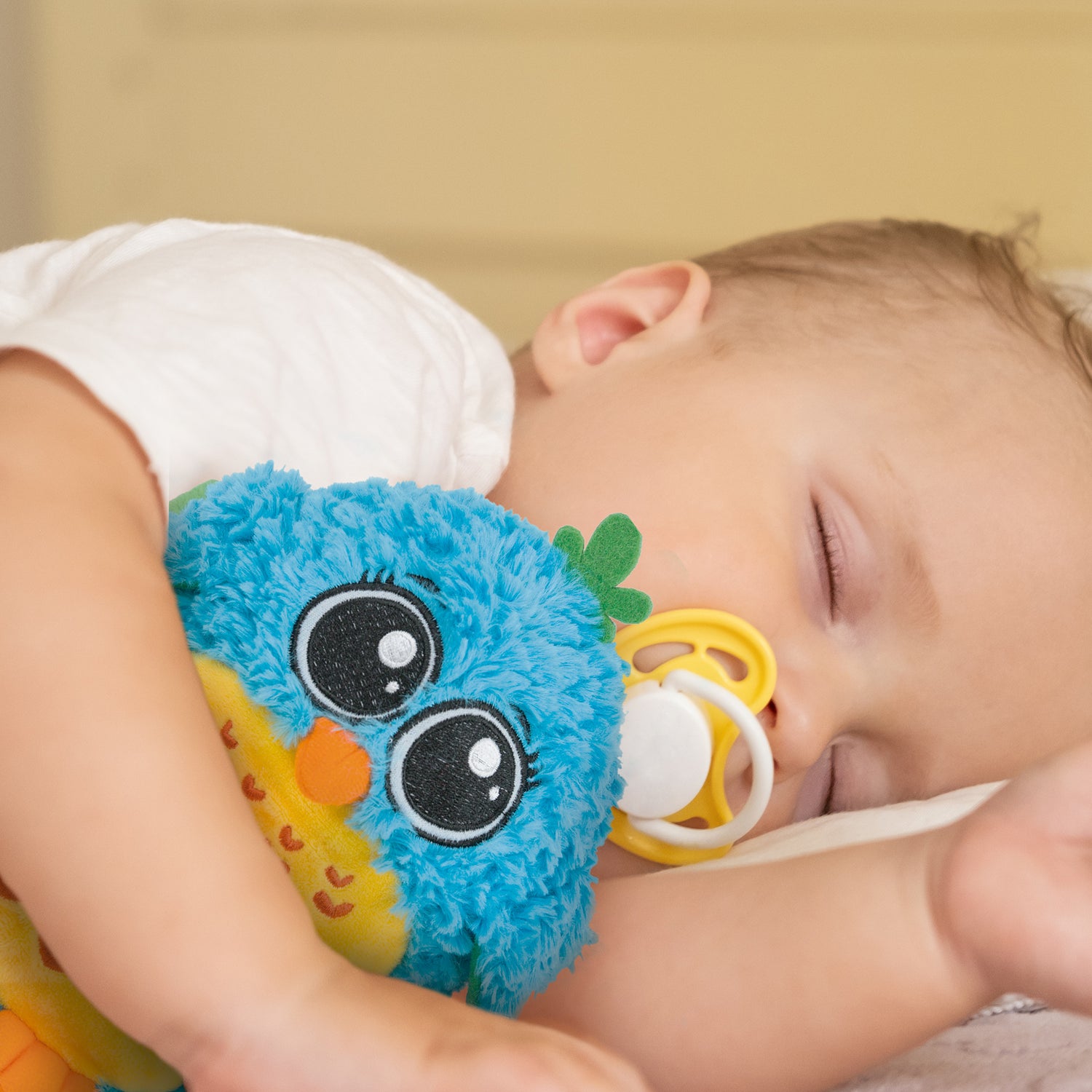
As individuals, we have our own personalities. It is innate in us. We get to discover and understand it as we grow. Personalities are not only for adults. Babies are no exemptions. Young and small as they are, they too have their own individual personalities, waiting to be discovered and understood, not only by themselves, but by other people. Their family most especially.
Your baby is born with personality traits which tell them when to laugh, or cry, or get angry, etcetera. Despite being born with it, your baby’s personality needs to be improved or developed. We are all born with our own individual personalities. But how it is developed and improved depend on how we were encouraged and guided when we were babies.
But there are some cases where, despite your efforts to improve your baby’s personality, it cannot be changed. Do not frustrate or be disappointed by it. Maybe it is not yet time for your baby to adapt the personality changes you want him to develop. It will develop in time.
What you should do for the meantime is to discover your baby’ personality traits, guide him and make him explore and learn certain things on his own. With proper guidance and encouragement, your baby will be able to develop and improve even the most challenging personality traits he might have as he learns to cope with the ups and downs of life.
YOUR BABY’S LEVEL OF ACTIVITY
A baby can have a high or low activity level. You can identify the activity level of your baby based on how he reacts to things. Be keen and observant. If your baby is satisfied with watching activities around him and having fun with it, then his activity level is low. It he bounces around, is always alert, and has high tolerance for stimulation, then he has a high level of activity.
To improve your baby’s low activity level, motivate him by introducing him to physical play. But do not pressure you baby by overwhelming him with it. Give him time to absorb and discover these things.
If your baby’s level of activity is high, the most important thing for you to do is to watch out for his safety. Be vigilant and see to it that you keep your baby safe because much as we hate to admit it, he will likely get into trouble because of his activeness. But the good thing about a baby with high activity level is that your baby will be a good sleeper. His activities the whole day will tire him out, making him sleep soundly.
BEING SENSITIVE
Does your baby react to noise, loud or soft? Is your baby irritated by wet diapers, a crowded place, humidity, and other things? Your baby’s reaction to certain things will show you how sensitive he is, and to what things and situations he is sensitive to.
There are babies who tend to be cranky and irritated when they are not feeling well. Others do not let sickness affect them. Their level of sensitivity also depends on what kind of personality they have.
There are babies who are very sensitive to almost everything during the first few months. As always, do not be frustrated by it. Instead, learn to accept your baby’s reactions and help him adapt to his environment.
Whatever your baby’s level of sensitivity is, make his environment soothing and comfortable. Especially during the first few months, soft music, less people as possible, low light, and soft voices when talking, and avoiding too much activities before bedtime will help.
HAVING A ROUTINE OR SCHEDULE OF ACTIVITIES
Regularity is the best term to use for this. Does your baby seem contented and settled with having a routine? Or does he throw a fit if you make him stick to a schedule of what and when to do things?
It is a good thing if you can develop a regular routine with your baby. Once he is adapted to it, it can give him a sense of security and regularity. It can even make both of your lives easier, yours especially.
ABILITY TO ADAPT
Observe how your baby reacts to his environment and to certain situations. Can your baby settle down and sleep anywhere other than his own crib or little bed? Flexibility is the keyword. If your baby is flexible, he can easily adapt to any environment and situations you expose him to. If your baby has this personality type, then you will have no trouble at all when you travel.
PERSISTENCE
Babies who are persistent do not easily give up. They welcome challenges. They get frustrated, yes. They may even throw tantrums, but it will not stop them from getting what they want to achieve. You need to be constantly aware of what they want. To make things easier for you, change diapers when your baby is busy playing. Or give him other toys when a certain toy does not challenge him anymore.
If your baby is not the persistent type, do not rush things with him. Give him enough activities to keep him occupied and busy, so you can get some chores done.
SOCIAL BEHAVIOR
Is your baby the “approachable” type? Does your baby offer a smile to almost everybody he encounters? Does he seem aloof, especially to strangers and people he seldom sees? Taking note of these things will help your discover and learn about your baby’s sociability.
It is normal for your baby to be clingy. He may want to always be beside you, and feel your arms, or even just your hand, on him. This gives him a sense of security, especially if you are among the company of other people.
If your baby likes to be around people, give him the opportunity to interact with them. But if your baby is the shy type, do not force him into a situation he is not comfortable with. Give him time to be familiar and comfortable with other people. His personality will develop in time.
LEVEL OF DISTRACTION
Babies are sensitive and are easily distracted. A distracted baby can be comforted easily. Keeping him away from whatever it is that distracted him and caused his tantrums is the solution. But there are times that a baby gets distracted while he is sleeping or feeding, for example by loud noises. The solution to this is try to see to it that a degree of quietness is established so your baby will not be distracted.
INTENSITY
Is your baby “vocal” with how he feels? Does he cry loudly or just whimpers when something is wrong? You may not be able to calm your baby when this happens. But do not despair. Put your baby down, give yourself a short time out. You baby is just showing you how intense his feelings are.
With less intense babies though, you need to be keen on their facial expressions, actions, and little sounds. You need to work harder to see and understand what your baby is thinking. Talk to him about it to let him know that you understand and that you are involved.
DISPOSITION
Does your baby have a happy disposition? Or does he often scowl and seem to have a world of his own? Either way, make sure that you expose your baby to a happy environment always. Fill his life with smiles, laughter, music, comfort, security, and a lot of love. Grumpy babies may improve his disposition once exposed to positive environment.


